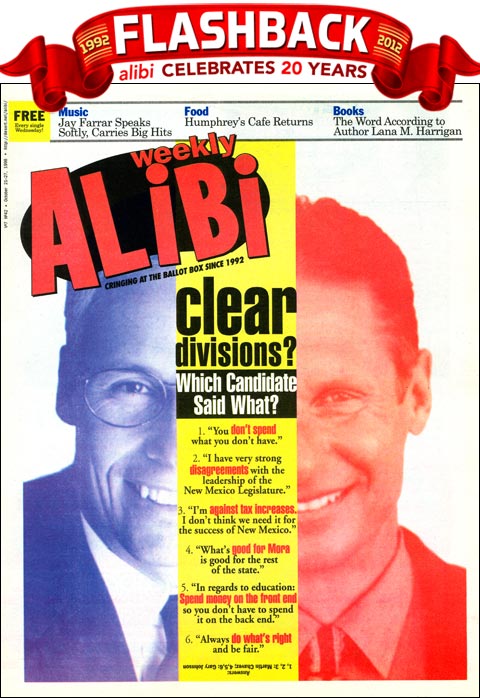Alibi Flashback: Marty Chavez Vs. Gary Johnson
Or, “Nasty Vs. Flaky”


David Lineberger

Latest Article|September 3, 2020|Free
::Making Grown Men Cry Since 1992


David Lineberger
